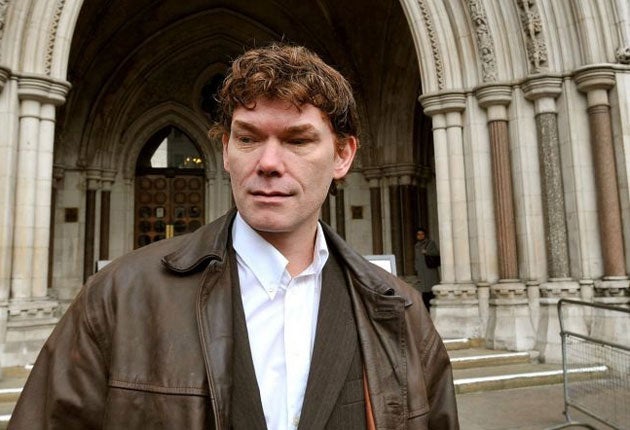Hacker refused right to appeal extradition to US

Your support helps us to tell the story
From reproductive rights to climate change to Big Tech, The Independent is on the ground when the story is developing. Whether it's investigating the financials of Elon Musk's pro-Trump PAC or producing our latest documentary, 'The A Word', which shines a light on the American women fighting for reproductive rights, we know how important it is to parse out the facts from the messaging.
At such a critical moment in US history, we need reporters on the ground. Your donation allows us to keep sending journalists to speak to both sides of the story.
The Independent is trusted by Americans across the entire political spectrum. And unlike many other quality news outlets, we choose not to lock Americans out of our reporting and analysis with paywalls. We believe quality journalism should be available to everyone, paid for by those who can afford it.
Your support makes all the difference.A British man accused of hacking into American military computers has lost the latest round in his battle to escape extradition to the United States.
Gary McKinnon, who has Asperger's syndrome and insists he was just looking for evidence of UFOs, was told yesterday that his extradition challenge cannot be heard by Britain’s new Supreme Court because his case is not of wide enough public interest.
Mr McKinnon's lawyers said they would now consider applying to the European Court of Human Rights in Strasbourg to save him from a trial in America where if convicted he faces a 60-year prison sentence.
Speaking after the ruling, his mother, Janis Sharp, said that the extradition of her son would have "disastrous consequences" for his health, including possible psychosis and suicide.
She said: "To use my desperately vulnerable son in this way is despicable, immoral and devoid of humanity."
Mr McKinnon, 43, from Wood Green, north London, had challenged the refusal of Keir Starmer QC, the Director of Public Prosecutions, to put him on trial in the UK on charges of computer misuse - which would have allowed him to avoid extradition.
Giving the court's decision today, Lord Justice Stanley Burnton, who heard Mr McKinnon's latest appeal earlier this year with Mr Justice Wilkie, said extradition was "a lawful and proportionate response" to his alleged offending.
There was no real prospect of him succeeding with his claim under Article 8 of the European Convention of Human Rights that extradition would breach his right to a private and family life.
Nor did the court think, on the evidence it had seen, that he had an arguable case that extradition to the US would result in a breach of his Article 3 right not to be subjected to inhuman or degrading treatment.
Mr McKinnon's solicitor, Karen Todner, said the court had prevented him joining in an appeal to the Supreme Court by former metals industry boss Ian Norris, who is in ill health and fighting extradition to America on price-fixing charges.
"The effect on Gary of these proceedings and impending extradition has been, and is, devastating," she said. "He is a highly vulnerable man in a very fragile state and this is a huge blow to him and his family."
Join our commenting forum
Join thought-provoking conversations, follow other Independent readers and see their replies
Comments